
Tokyo Olympics: IOC to investigate after Chinese gold medallists wear Mao Zedong pins on podium, as state TV edits out badges
- Cycling team sprint champions Bao Shanju and Zhong Tianshi may have breached IOC’s Rule 50 that bans political paraphernalia or gestures during medal ceremony
- IOC spokesperson Mark Adams says the Chinese delegation has promised no repeat of the incident and would cooperate with the body’s inquiries
Olympic chiefs say they have launched an investigation after China’s two track cycling sprint gold medallists wore pins bearing the image of the country’s founding father, Mao Zedong, during the medal ceremony.
The Chinese duo of Bao Shanju and Zhong Tianshi may have breached International Olympic Committee (IOC) rules on the display of political paraphernalia as they celebrated on the podium after clocking 31.895 seconds to beat Germany in the final and win gold in the women’s team sprint. Bao and Zhong had earlier set a world record of 31.805 seconds.
At a press briefing on Tuesday, IOC spokesman Mark Adams said the body had asked for a report from the Chinese Olympic Committee and had launched a formal investigation.
“These things do take time and we do need to hear people,” said Adams. “There would be, otherwise, you know, all sorts of issues and rumours floating around and we need to get to the bottom of it. We need to hear everybody involved.”
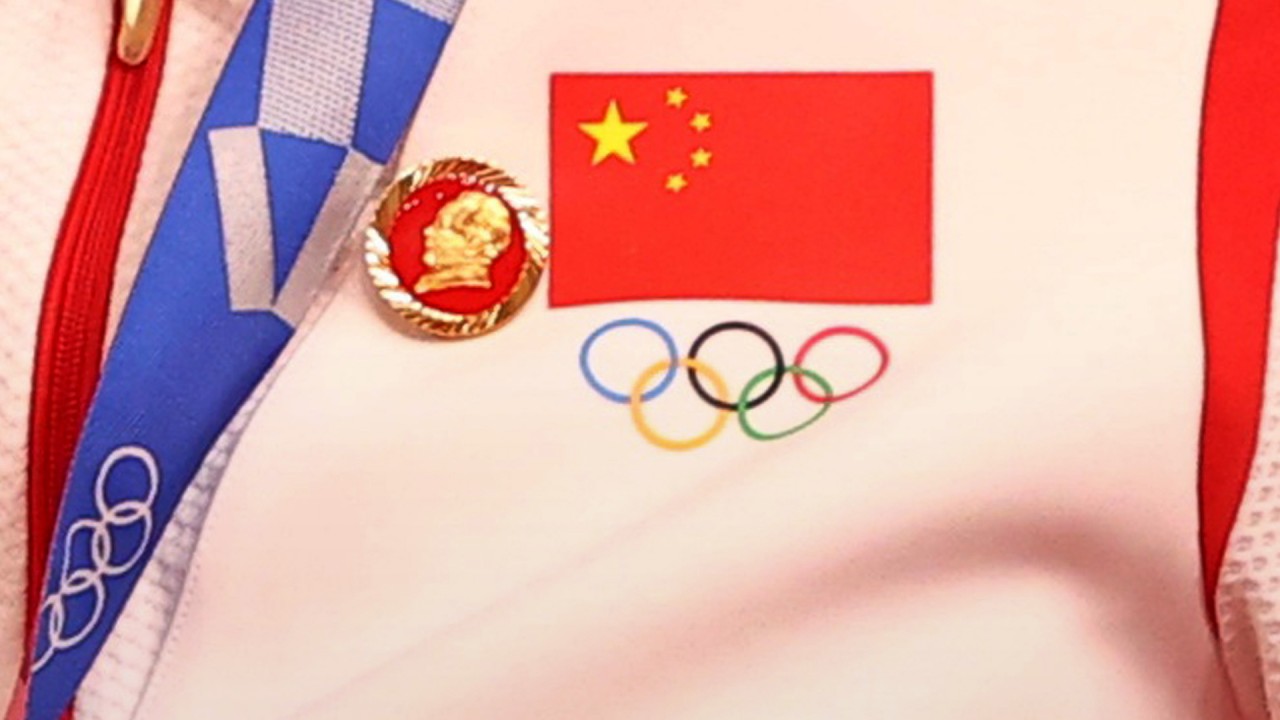
02:13
Mao badges worn by Chinese medallists on Olympic podium prompt investigation at Tokyo Games
On Wednesday, Adams said the Chinese delegation told the IOC they would provide a report “soon” and offered an assurance there would be no repeat of its athletes wearing the badges.
According to Rule 50 rolled out in 1975, no “political, religious or racial propaganda is permitted in any Olympic sites, venues or other areas”. Examples include signs, armbands or politically charged gestures such as hand signals and kneeling, according to Rule 50 guidelines developed by the IOC’s Athletes’ Commission.
Recently, the IOC relaxed the rule to allow athletes to express their views during the Games, including when speaking to the media or in team meetings, but expressions during official ceremonies, on the field of play or in the Olympic Village are still prohibited.
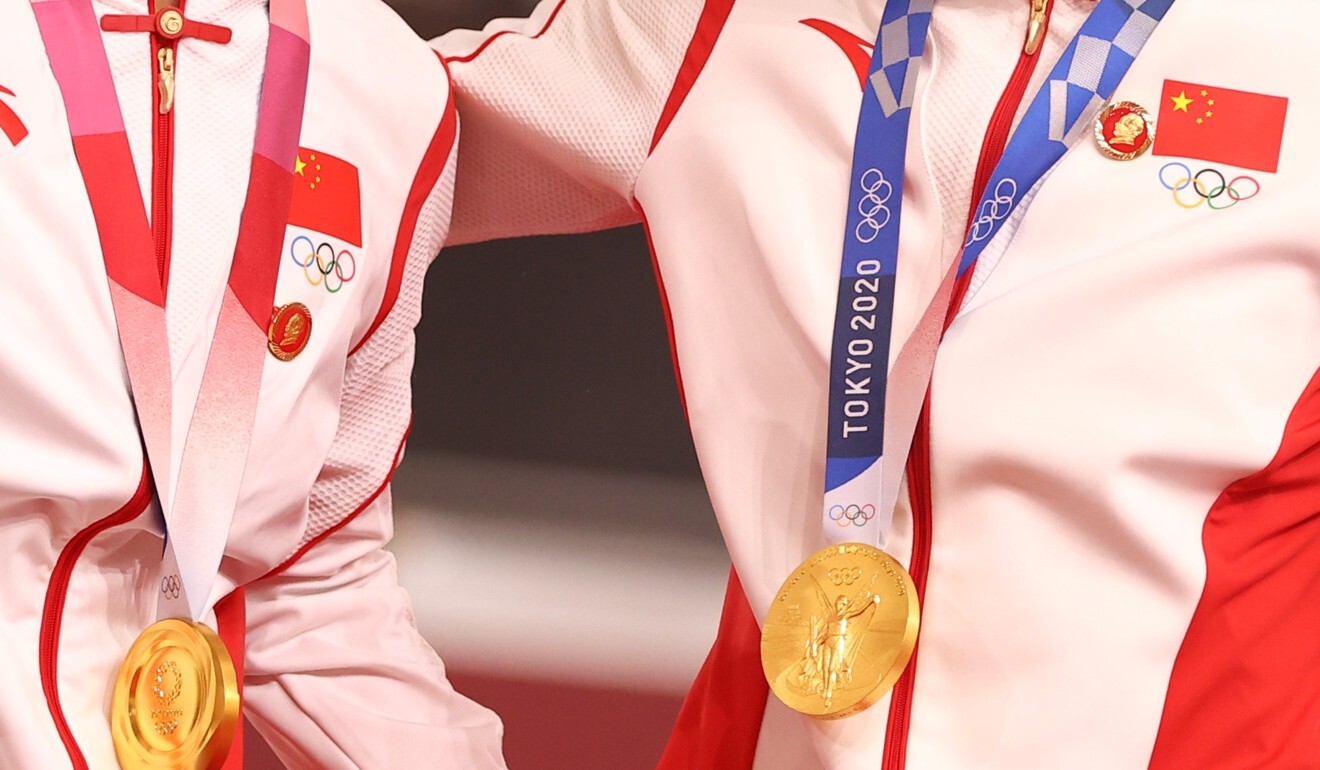
Each incident related to Rule 50 will be evaluated by their respective National Olympic Committee, international federation and the IOC, and disciplinary action will be taken on a case-by-case basis.
Bao and Zhong wore the red-and-gold pins with the profile of the former chairman on their jackets – a popular souvenir item among Chinese.
It was not the first time the Mao badge was seen on Chinese Olympians. The badge is believed by some Chinese athletes to bring them luck.
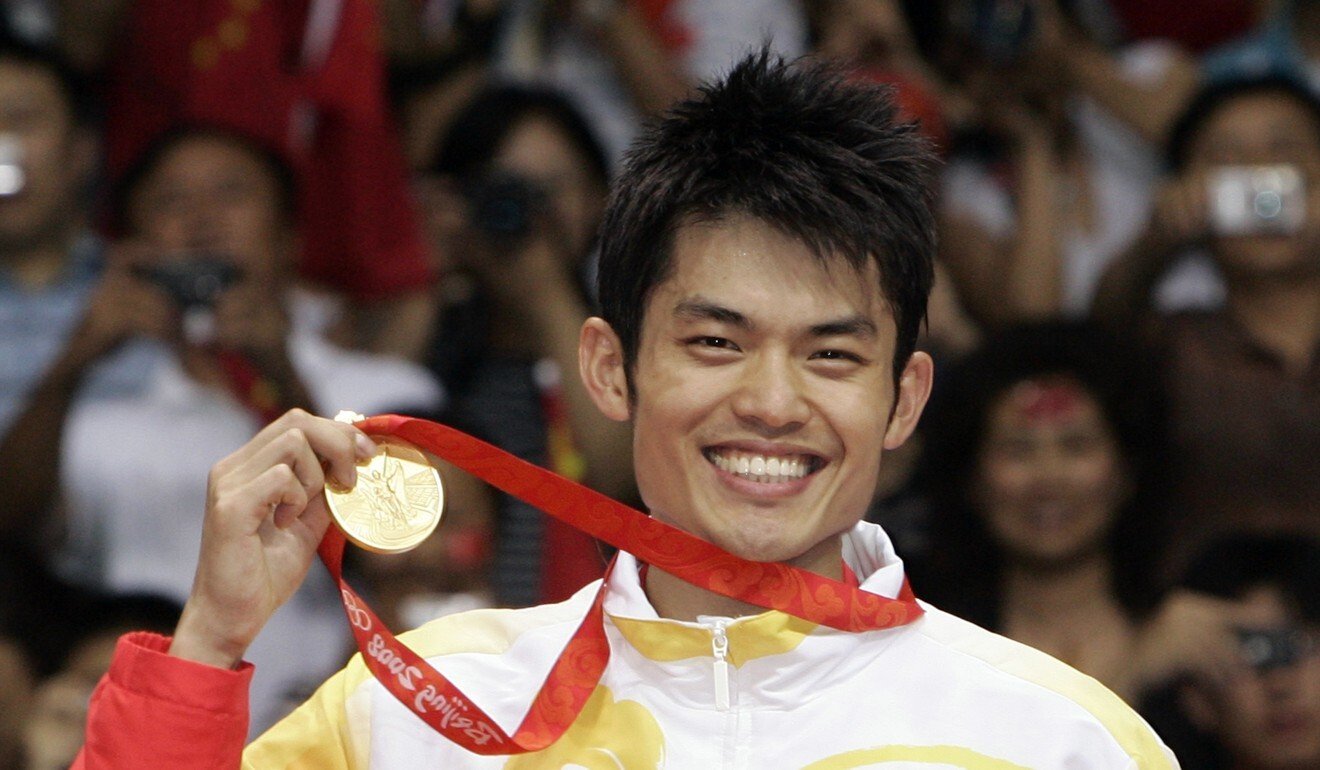
In 2008, China’s badminton star Lin Dan – known as “Super Dan” – was seen wearing a small golden Mao pin during the men’s singles final against Malaysia’s Lee Chong Wei. He overpowered Lee in straight sets to clinch the gold medal.
Lin later said he visited Mao’s hometown before the Games and paid his respects at his statue. Lin said he was inspired by Kong Linghui, the Chinese table tennis legend who won gold medals at the Sydney Olympic Games. “At the 2000 Olympic Games, Kong wore a badge featuring Chairman Mao as he claimed gold. So I hope Chairman Mao can also bring me some power this time.”
But it was not always the case. Before the Athens Games in 2004, Lin also paid a visit to Mao’s hometown. He made a joke at Mao’s statue, asking: “Is the weather also too hot for you, Chairman Mao?” He was beaten in the first round in Athens.

Although Rule 50 has been in force for more than 45 years, Mao pins from past Games failed to stir the IOC into action.
However, the rule has recently gained in notoriety amid Black Lives Matter activism spurred by the killing of George Floyd in the United States, prompting the IOC to revise its legislation.
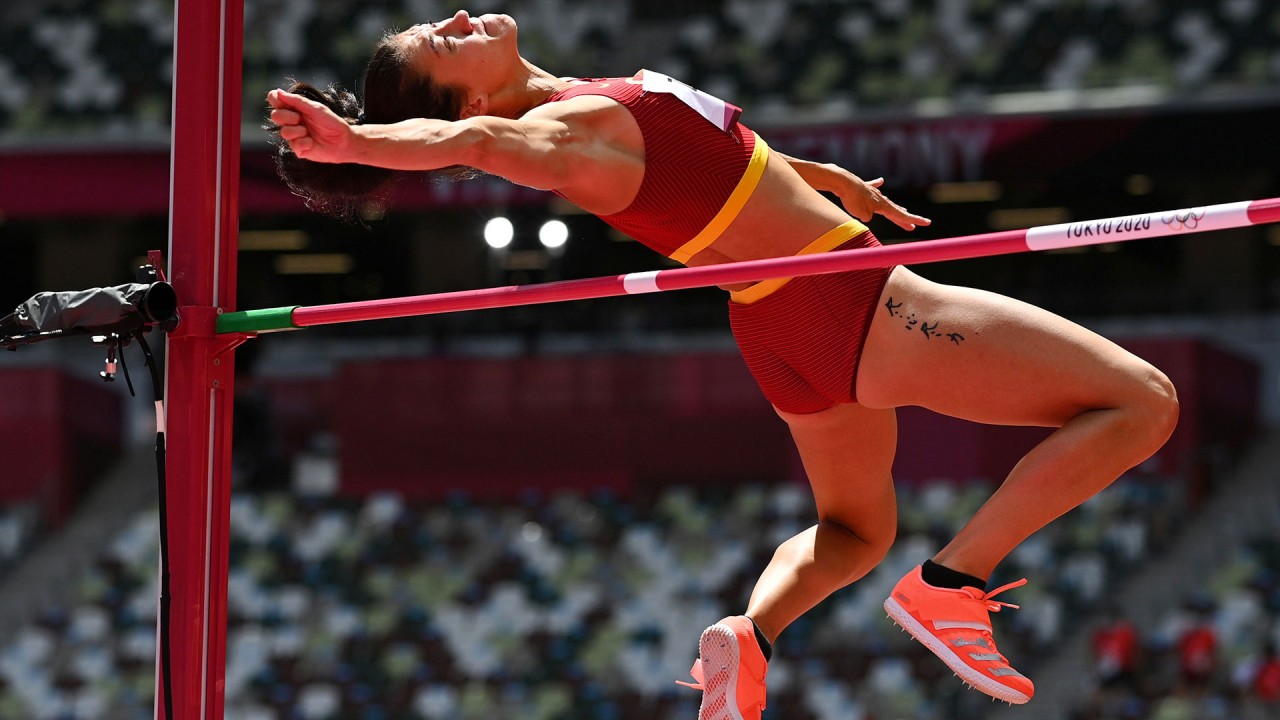
04:09
History-making Chinese athlete fulfils grandmother’s Olympic dream
On July 26, Costa Rican Olympic gymnast Luciana Alvarado incorporated a gesture at the end of her floor routine, taking a knee, putting her left hand behind her back and raising her right fist into the air in recognition of the Black Lives Matter movement.

Although contradicting guidelines, Lorenz was given permission by the IOC as a gesture of respect to sexual diversity.
However, US shot putter Raven Saunders – who made an X gesture with her arms representing “the intersection of where all people who are oppressed meet” on the podium – faced the threat of sanctions after the IOC initiated an investigation on Monday. On Wednesday, however, the IOC said it was suspending the probe after it was revealed Saunders’ mother had just died.
Although the Chinese delegation assured the IOC there would be no repeat of the Mao pins, mainland audiences were thrilled at seeing the two gold medallists with their badges.
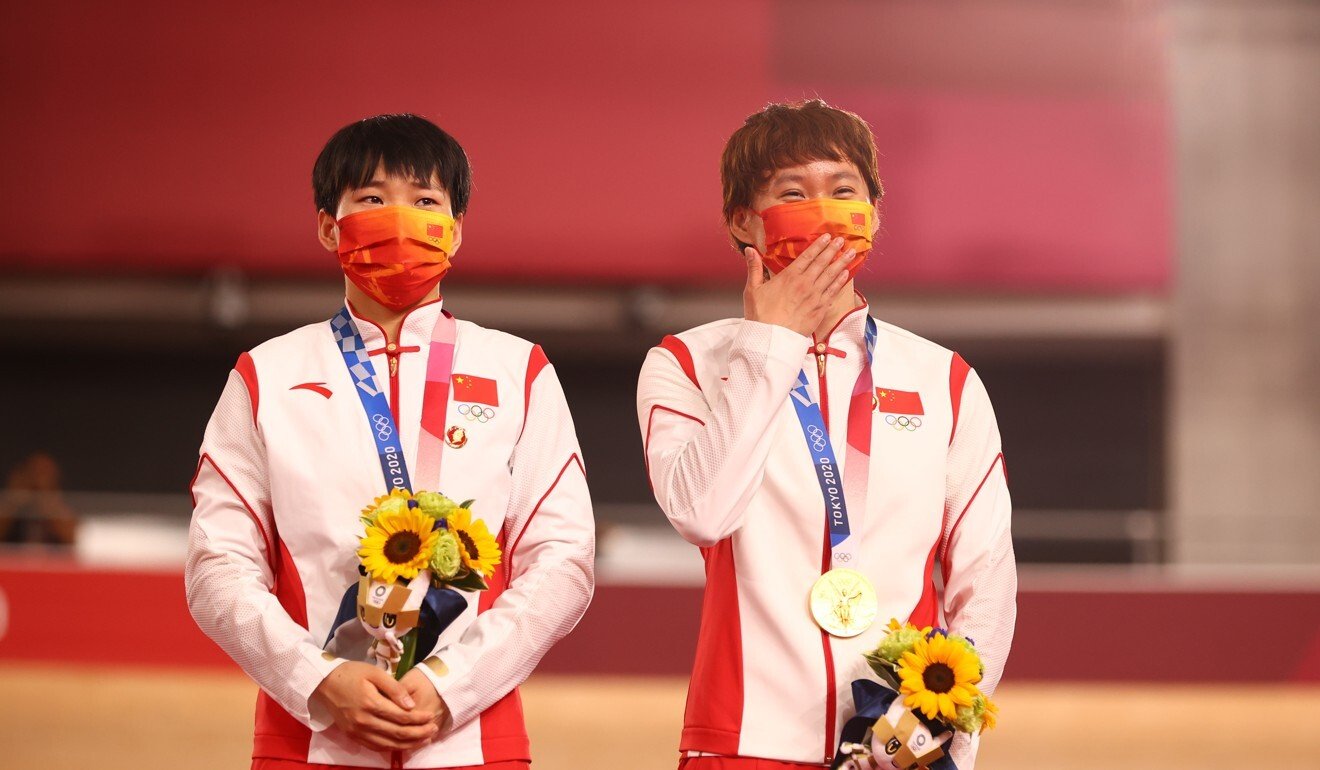
“They put him to the spot closest to the national flag and the heart,” wrote one online commentator. “Chairman Mao is smiling in Tokyo,” another agreed. “The guardian of the people!” one responded.
National broadcaster CCTV edited out the Mao badges from the jackets of the two athletes when replaying the medal ceremony on Tuesday night. The move was criticised by some audiences as “pathetic”.
“It is such an act of servility,” one user said. “Isn’t it to boost national esteem and pride [among audiences]?”
“Wearing a badge does not necessarily mean that it must be a religious or political expression or a protest,” said another. “It can result from the deep love and respect for that person from the bottom of their heart. If they were really held accountable for wearing the badge, our national team and Olympic committee officials should help them defend their rights.”
The Post has contacted CCTV and the National Radio and Television Administration for comment.

